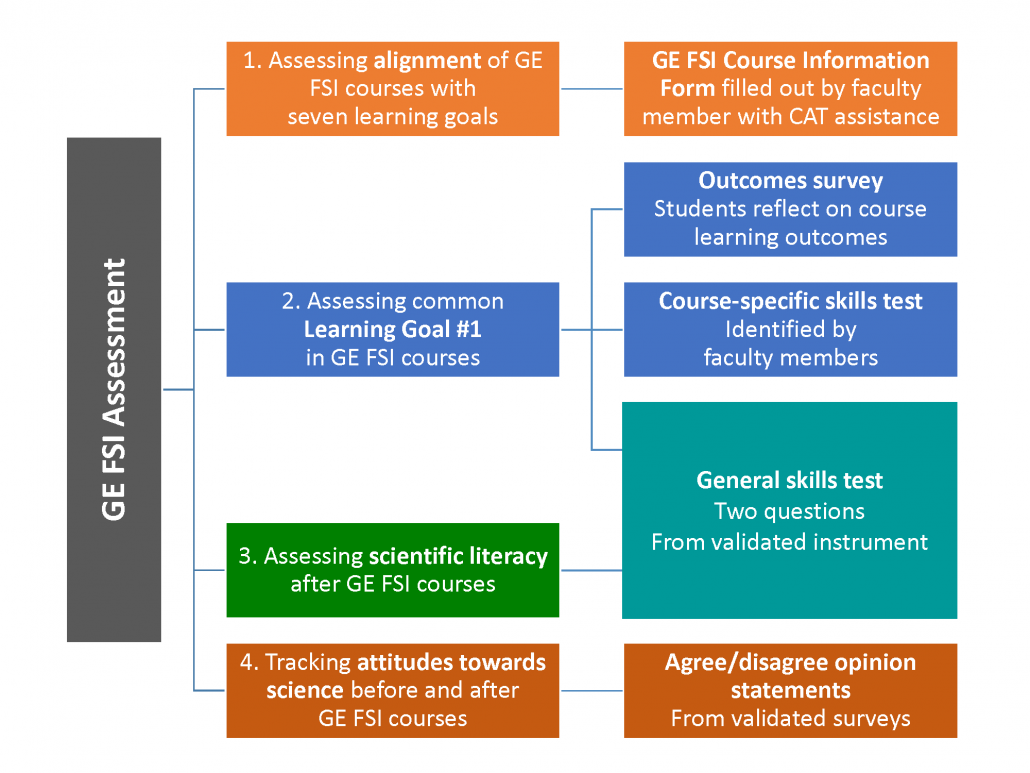Assessment and Curricular Reform of the GE Foundations of Scientific Inquiry Courses
Goals: There is a need to improve science general education in order to render it relevant, interdisciplinary, and inclusive. UCLA’s GE ad hoc committee established common Learning Goals and suggested Student Learning Outcomes for all courses in its GE Foundations of Scientific Inquiry (GE FSI) curriculum. Embarking on assessing this endeavor, CAT has developed a comprehensive assessment plan (see the plan below) for all GE FSI courses (over 100) that combines course improvement and faculty development. Every quarter, CAT engages with faculty teaching GE FSI courses to identify course learning outcomes that align with the GE FSI program goals. Complementary to that process, CAT administers pre/post-course surveys to students in GE FSI courses to gather information regarding:
(1) students’ course learning experiences
(2) students’ scientific literacy skills
(3) students’ attitudes towards science after GE FSI courses.
GE FSI Schematic Assessment Plan
Findings: The data from the surveys are utilized to assess the success of individual courses in meeting the GE FSI program goals. We explore correlations between the common GE FSI learning goals and specific course learning outcomes, as well as those between the course learning outcomes and attitude survey questions to observe if a particular type of course or assignment influences student attitudes toward science. Individual course reports are developed and shared with every course instructor which provide detailed assessment findings. Instructors can then consult with the team to learn more about how specific aspects of their learning outcomes, teaching practices, and course assignments impacted student learning. Through this, CAT strengthens their engagement with faculty and leads to a formative and holistic assessment of the GE FSI courses.
This assessment helps to inform best practices for teaching science GE courses and provide a robust understanding of how students’ scientific literacy and attitudes toward science can be impacted by the nature of GE FSI course (lecture vs. laboratory), teaching practices, intended major (STEM vs. non-STEM), and various demographic factors.
Resources:
- Poster presented at the 2019 AAC&U Transforming STEM Higher Education Conference
- Committee Update on GE FSI Assessment Project (January 23, 2020)
Contact: For more information about the GE FSI assessment, please contact rramachandran@teaching.ucla.edu.

